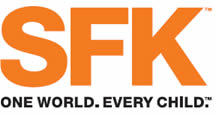- Education Topics
- Achievement Gap
- Alternative Education
- American Education Awards
- Assessment & Evaluation
- Education during COVID-19
- Education Economics
- Education Environment
- Education in the United States during COVID-19
- Education Issues
- Education Policy
- Education Psychology
- Education Scandals and Controversies
- Education Reform
- Education Theory
- Education Worldwide
- Educational Leadership
- Educational Philosophy
- Educational Research
- Educational Technology
- Federal Education Legislation
- Higher Education Worldwide
- Homeless Education
- Homeschooling in the United States
- Migrant Education
- Neglected/Deliquent Students
- Pedagogy
- Sociology of Education
- Special Needs
- National Directories
- After School Programs
- Alternative Schools
- The Arts
- At-Risk Students
- Camps
- Camp Services
- Colleges & Universities
- Counties
- Driving Schools
- Educational Businesses
- Financial Aid
- Higher Education
- International Programs
- Jewish Community Centers
- K-12 Schools
- Language Studies
- Libraries
- Organizations
- Preschools
- Professional Development
- Prom Services
- School Assemblies
- School Districts
- School Field Trips
- School Health
- School Supplies
- School Travel
- School Vendors
- Schools Worldwide
- Special Education
- Special Needs
- Study Abroad
- Teaching Abroad
- Volunteer Programs
- Youth Sports
- For Schools
- Academic Standards
- Assembly Programs
- Blue Ribbon Schools Program
- Educational Accreditation
- Educational Television Channels
- Education in the United States
- History of Education in the United States
- Reading Education in the U.S.
- School Grades
- School Meal Programs
- School Types
- School Uniforms
- Special Education in the United States
- Systems of Formal Education
- U.S. Education Legislation
- For Teachers
- Academic Dishonesty
- Childcare State Licensing Requirements
- Classroom Management
- Education Subjects
- Educational Practices
- Interdisciplinary Teaching
- Job and Interview Tips
- Lesson Plans | Grades
- Professional Development
- State Curriculum Standards
- Substitute Teaching
- Teacher Salary
- Teacher Training Programs
- Teaching Methods
- Training and Certification
- For Students
- Academic Competitions
- Admissions Testing
- At-Risk Students
- Career Planning
- College Admissions
- Drivers License
- Educational Programs
- Educational Television
- High School Dropouts
- Higher Education
- School Health
- Senior Proms
- Sex Education
- Standardized Testing
- Student Financial Aid
- Student Television Stations
- Summer Learning Loss
Success for Kids (SFK) - Los Angeles

Basic Information
Address: 833 S. Spring #208
Los Angeles, CA 90014
Phone Number: Phone: (310) 601-1003
Fax Number: (310) 295-1955
Email: lavolunteers@sfk.org
Director: Tausha Kutcher
Action Shots
* There are currently no photos associated with this listing.
Additional Information
Population Served: Elementary school students
Ages for Volunteer: All
Mission Statement:
To empower at-risk children and adolescents to become resilient, productive citizens by delivering innovative research-based programs that enhance four personal strengths (interpersonal skills, emotional intelligence, problem solving skills and improved/increased self-sufficiency) and give students a greater sense of purpose in their lives.
Philosophy/Belief Statement:
We have a duty to care for all our children; the greater their challenges, the greater the duty.
We are all connected; there is strength in diversity. Our vision is that all children and adolescents will reach their full potential, while embracing their connection to others.
Program History:
Success for Kids, Inc. (SFK), an international non-profit organization, is dedicated to empowering at-risk children and adolescents to become resilient, productive citizens by delivering innovative research-based programs that enhance four personal strengths (interpersonal skills, emotional intelligence, problem solving skills and self-sufficiency) and give students a greater sense of purpose in their lives. With a dedicated staff of more than 100, SFK is the largest international social emotional learning organization in the world. Since its inception in 2001, SFK has provided more than $25 million in programmatic support impacting more than 60,000 children and adolescents. SFK is a 501(c) (3), tax-exempt organization.

